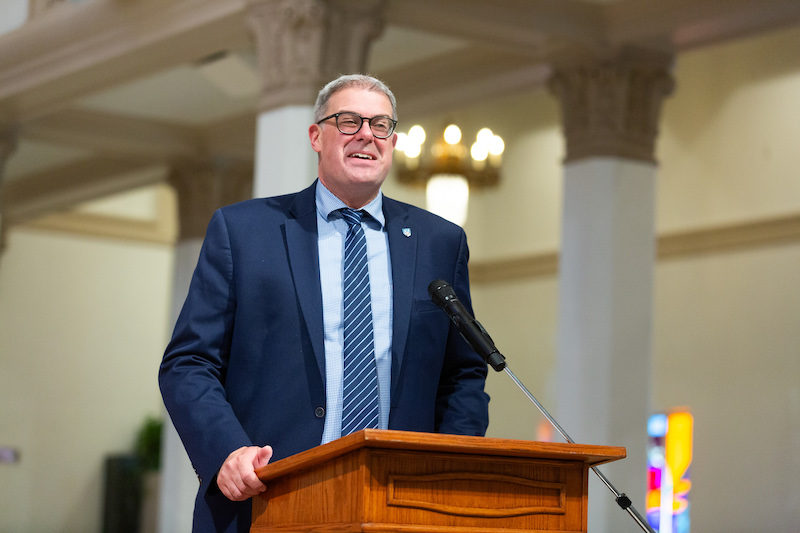
Cabinet Corner is a periodic feature of LMU This Week where the university’s executive leaders share their perspectives with the community. The President’s Cabinet will provide updates on initiatives, policies, events, challenges, and areas of interest.
On January 19, Pope Francis was supposed to address a gathering of members of the International Federation of Catholic Universities (IFCU) on the occasion of the centennial of that organization’s founding. I say “supposed to” because he wound up feeling under the weather and instead shared his remarks in writing. You can read them here, and I encourage you to do so. His observations are brief but also a powerful reminder of our summons to be a vector for transformative change amid social forces that pressure us to act out of fear rather than love. I offer here a few brief quotations for your consideration and reflection:
On leveraging the power of our network to globalize hope
Today there are almost 2,000 Catholic universities in our world. We can imagine the potential of more effective and improved working relationships for strengthening the Catholic university system. At a time of great fragmentation, we must dare to counter the trend, and to globalize hope, unity, and concord in place of indifference, polarization, and conflict.
On Catholic universities as instruments of peace in times of war
[T]he Federation was established “in the wake of a horrendous war,” to be a means of fostering “reconciliation and the growth of peace and charity among peoples” (Apostolic Letter Catholicas Studiorum Universitates, 27 July 1949). Sad to say, we are celebrating this centenary against the backdrop of a war, a third world war fought piecemeal. It is all the more essential, then, that Catholic universities be in the forefront of efforts to build the culture of peace, in all its facets, which need to be addressed in an interdisciplinary vision.
On the risks of universities becoming businesses
At a time when, unfortunately, education itself is becoming a “business,” and great impersonal economic systems are investing in schools and universities as they do in the stock market, the Church’s institutions must show that they are of a different nature and act in accordance with a different mindset. An educational enterprise is not only based on perfect programs, efficient equipment, or good business practices. A greater passion must animate the university, as evidenced in a shared search for truth, a greater horizon of meaning, lived out in a community of knowledge where the liberality of love is palpable.
On the need for S.I. (Spiritual Intelligence) in the age of A.I.
It is not enough to prepare students for competitive careers: it is necessary to help them discover fruitful vocations, to inspire pathways of authentic existence and to integrate the contribution of each individual within the creative dynamics of the larger community. Certainly, we need to reflect on artificial intelligence, but also on spiritual intelligence, without which persons remain strangers to themselves. The university is too important a resource to live only “in step with the times,” setting aside the responsibility called for by the deeper human needs and the dreams and aspirations of the young.
On the illusiveness of neutrality
We must always ask ourselves: What is the purpose of the learning we impart? What is the transformative potential of the knowledge we produce? What and whom do we serve? Neutrality is a mirage. A Catholic university must make choices, choices that reflect the Gospel. It must take a stand and clearly show it in its actions, “getting its hands dirty” in the spirit of the Gospel, for the transformation of the world and in service to the human person.
I am heartened that I see so much of what the Holy Father calls us to be already embodied in our students, faculty, and staff and enacted at LMU in our curricular and co-curricular programs; but we must also recognize that remaining true to that call requires constant vigilance as we, in the words of the document, make choices — and here I am reminded of St. Ignatius’ admonition that love is shown more through deeds than words — in line with Gospel values.
May we continue to reflect Pope Francis’ vision in our teaching and learning, our work and our ministries!




